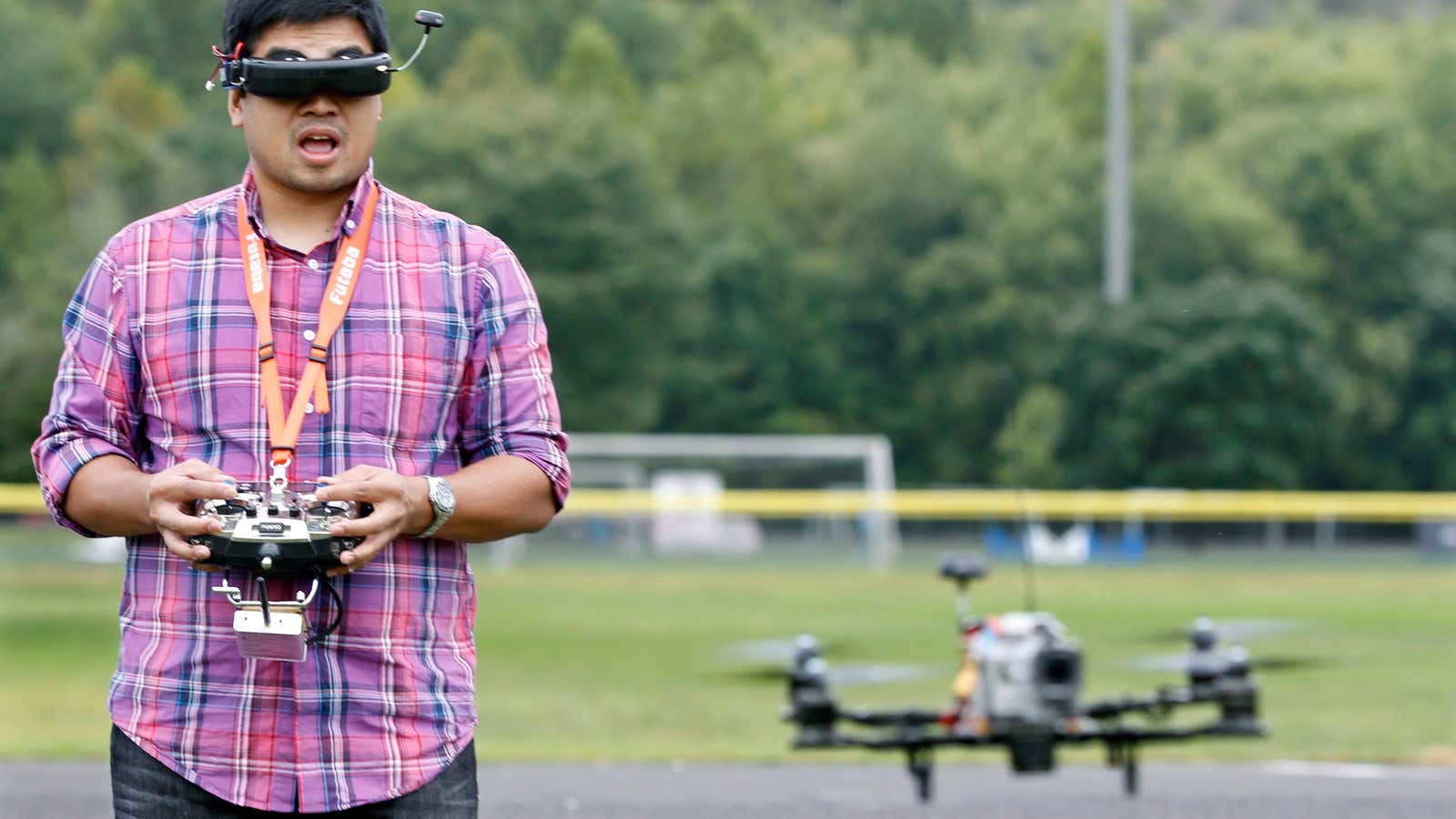There are a lot of reasons why Amazon delivering goods by drone anytime soon isn’t merely “optimistic,” as CEO Jeff Bezos put it, but outright silly. Technical hurdles aside, it’s likely that in the US, drones won’t even be approved to fly in the way that Amazon needs them to until 2020.
But Amazon is nothing if not opportunistic. And Bezos has shown a willingness to push his company into services that are only vaguely related to Amazon’s core mission of eating the world of retail, even if it means turning Amazon into a sprawling megalopolis of barely-connected divisions.
Take Amazon Web Services. It’s a fast-growing subset of the company that could be making $8 billion in yearly revenue by 2015. It sells on-demand cloud-computing power to Fortune 500 companies, startups and anyone with a credit card, and has fast become a de-facto standard for that kind of service. It is connected to Amazon’s other missions only by virtue of Amazon’s own reliance on, and therefore expertise in, cloud computing.
But turning a piece of the company’s infrastructure into a service to be sold at rock-bottom prices, undercutting more experienced and specialized sellers of cloud computing services, is the sort of thing only a company led by someone with the ambition of Bezos would think to do. It’s as if Walmart got the idea to license its fleet of trucks, or Apple its online store. And it’s a model for what Amazon could do with a drone-powered delivery system if it perfects it early enough.
After all, even after they get full approval, drones aren’t likely to be delivering more than a small fraction of the things people buy on Amazon. They’ll be limited to small packages that people need extremely urgently, and may never work in dense urban areas where there is too little open ground to land on and too many obstacles to contend with. However, drones are fantastic for a wide range of other tasks. And so far, the makers of non-military drones tend toward the small-scale and hobbyist.
So if Amazon can become the first company with significant resources to invest in consumer drones, it could corner the market on cheap unmanned aerial vehicles the way it’s cornering the market on cheap computing power. And so far, investors have rewarded Bezos for putting long-term, wide-ranging ambition before short-term profits. Which means that however distant they are right now from Amazon’s core business, drones could become a much larger part of it.
